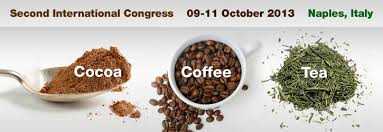Fernandez-Gomez, B.1, Ullate, M.1, Mesa, M.D.2, Ferranti, P.3, del Castillo, M.D.1 1 Institute of Food Science Research (UAM-CSIC). Madrid, Spain. 2 Institute of Nutrition and Food Technology, Biomedical Research Centre, University of Granada, Spain 3 Department of Agriculture, University of Naples “Federico II”, Portici (NA), Italy. E-mail: mdolores.delcastillo@csic.es
Advanced glycation endproducts (AGEs) are known contributors to excessive oxidative stress and inflammation, which have been linked to recent epidemics of diabetes and cardiovascular disease. Agents that inhibit the formation of AGEs have emerged as being potentially therapeutic in patients with diabetes and age-related diseases.
In particular, the oxidation process is believed to play an important role in AGE formation. It has been suggested that AGE inhibitors with antioxidant properties such caffeoylquinic acids (CQA), present in coffee and its by-products such as silverskin, may effectively block AGE formation by preventing further oxidation of Amadori products, early glycation products, and metal-catalyzed glucose oxidation.
The present study was designed to evaluate the AGE inhibitory mechanism of action of pure CQA and coffee silverskin extract. CQA has been identified as potential potent inhibitors against AGE generation [1].
Glycation mixtures constituted by protein, haemoglobin and albumin, and a carbonyl source, methylglyoxal or glucose, in presence and absence of CQA or coffee silverskin extract were prepared and incubated mimicking physiological conditions during 21 days. Samples were fractionated by ultrafiltration.
Data on protein structure were obtained by mass spectrometry, Folin reaction and UV- Vis spectral analysis while information on protein functionality was investigated by measuring the antioxidant capacity of the protein fraction by ABTS radical cation assay. Data confirm formation of protein-phenol conjugates with antioxidant power. Conjugation may protect the protein against oxidation and inhibit AGEs formation.
The study support the potential of coffee silverskin extract for inhibiting AGEs formation and prevention of ageing and age- related diseases. Further studies should be performed for confirmation of the hypothesis in vivo.
Research has been funded by the projects: Naturage (AGL-17779) and IT2009-0087
References
Jung H.A. et al. Inhibitory Activity of Coumarins from Artemisia capillaris against Advanced Glycation Endproduct Formation. Arch Pharm Res 2012, 35, 1021-1035.

















